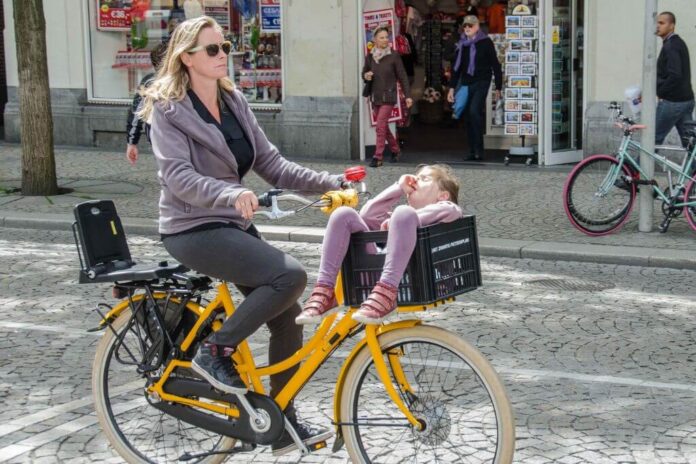Motherhood in the Netherlands can be very different than you might expect. Here are some things to look forward to as an international parent in the Netherlands.
I’ve developed a list of nine things to expect as an expat mother in the Netherlands with the support of other international mothers living in the Netherlands and my own personal experience.
Kraamzorg (Post-Maternity Care) in the Netherlands

What exactly is this? International mothers who have given birth in the Netherlands are astounded and appreciative of it. It’s an outstanding program that demonstrates the Netherlands’ foresight in terms of assisting new parents.
After giving birth, a nurse will visit your home and provide you with all the assistance and care you require (for up to seven days). This was fantastic for me because I had no idea what I was doing as a first-time mother.
I had all the attention, counsel, and help I needed around the house when I brought my bundle of joy home.
I delivered my baby through c-section, so this assistance was quite valuable after my first major procedure. It meant that my husband and I could relax and enjoy the first few days with our infant boy.
I felt nothing except warmth, support, and love in my first days as a mother.
A strong sense of belonging to the Dutch community
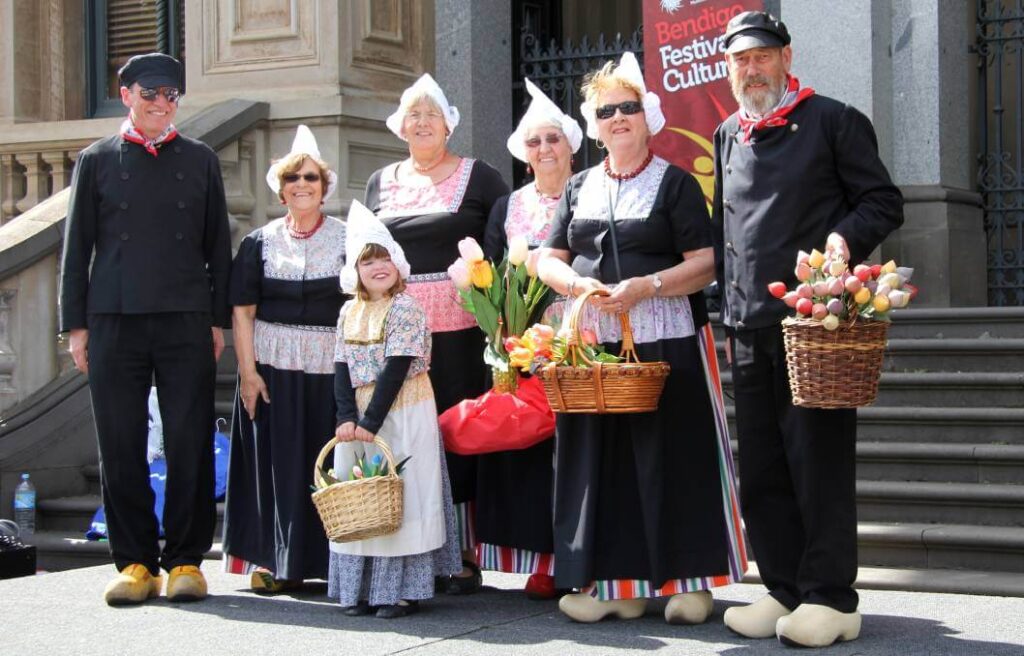
Many other overseas mothers I’ve spoken with expressed gratitude for the opportunity to be a mother in the Netherlands. They believed it was a safe and welcoming environment in which to raise their children.
Allowing your children to ride their bikes in the neighborhood is not a problem in the Netherlands because it seems safe, and it is even typical to see school-age children go home from school alone.
Neighbors are showing a lot of support, which is very important to me. My neighborhood has a lot of swings and other activities for my son, which makes me delighted I live here.
I may not be in my native country, but I know my son is in a good, strong, and safe neighborhood.
Boven woning and my big pram
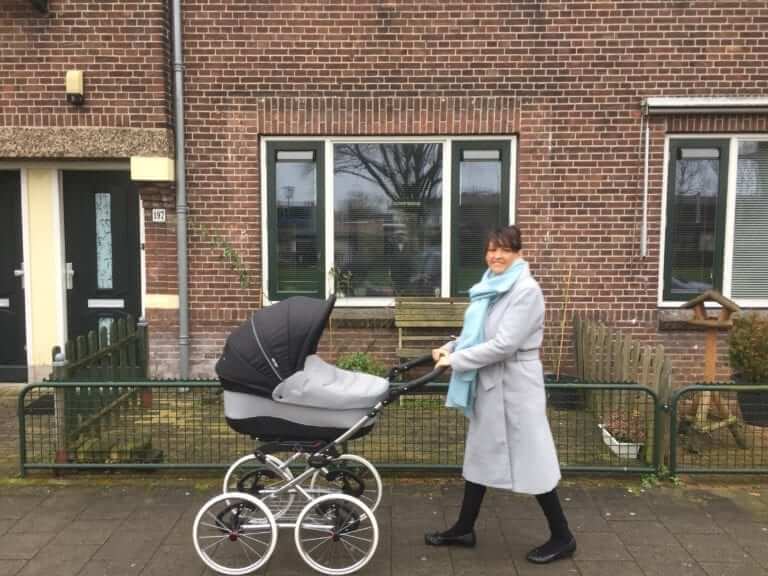
But look at how lovely it is! Vanessa Hope van Engelen/Supported
This is my dumb rant, but it has been a challenge for me on numerous occasions!
I live boven woning (above ground level), and as I enter my front door, I am met with a flight of steep stairs. These stairs are “typical” Dutch steps, and you’ll always see them in the Netherlands.
When I found out I was pregnant, I heard that picking a pram is crucial to the pregnancy process. As a result, I chose to purchase a gorgeous but fairly large pram that was also quite functional!
Trying to carry my enormous, beautiful pram up and down these stairs while keeping my baby entertained has been pretty difficult for me (yeah, this is entirely my fault!).
Discovering local speeltuins (playgrounds)
Because they are sometimes concealed, I had no idea speeltuins (playgrounds) existed in my neighborhood before having a kid, but they are great!
You can find a modest doorway in your neighborhood, but if you step through it, you will find a great playground for children.
It’s like seeing your neighborhood for the first time.
On hot days, your neighborhood playground may have “water fun” (a shallow pool with a water spray). I enjoy spending time in my neighborhood speeltuins and enjoy having playdates with other mothers.
I am fortunate to have three speeltuins close to my home.
There are also many additional places with animals, vegetable gardens for youngsters, and a variety of other activities. Do you know where the speeltuins are in your area?
The Netherlands is a baby-friendly country.
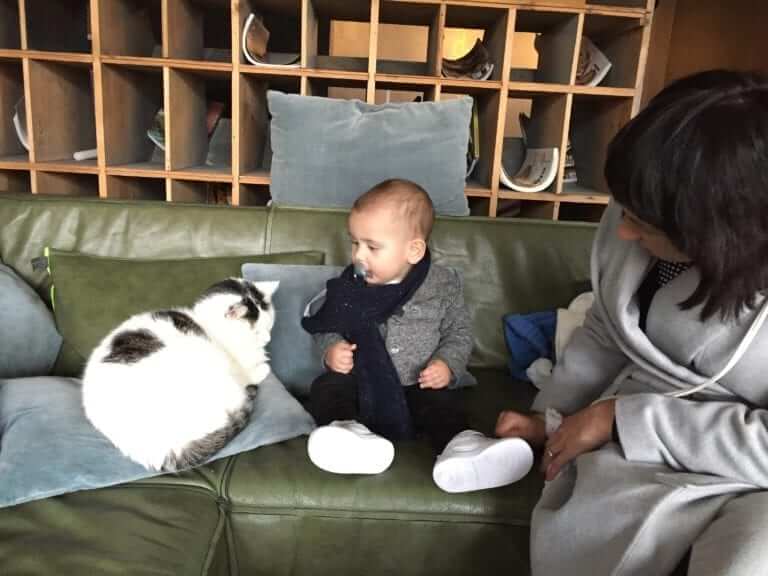
This means I feel like I can have my baby wherever I go! That means you can bring your kid to most cafés, bars, and restaurants.
Many bars have cats, and you may, of course, bring your dog. The same holds true for your child; they are more than welcome!
If you glance around the terrace the next time you go, you might discover a procession of prams around you, with so many babies to admire!
I recently attended a terrific family-friendly festival! I like that I don’t have to hide inside my house just because I have a baby.
Bilingualism
“What language do you speak to your child?” is a question I’ve been asked a lot since having a kid in the Netherlands. It’s a good question because I’m an Australian living with my Dutch husband in the Netherlands.
Despite the fact that the Dutch begin studying English at an early age, around 10 years old in school, I wanted my son to begin learning Dutch and English from birth. 🇳🇱🇬🇧
As a result, I speak English to my son and my husband speaks Dutch to him. My son attends bilingual childcare (Dutch/English) outside of the home.
Louie has enrolled in a bilingual school, which he will begin when he is four years old. I like the fact that my son has the privilege of learning both of our (mother tongue) languages at such a young age.
Upgrading your bike
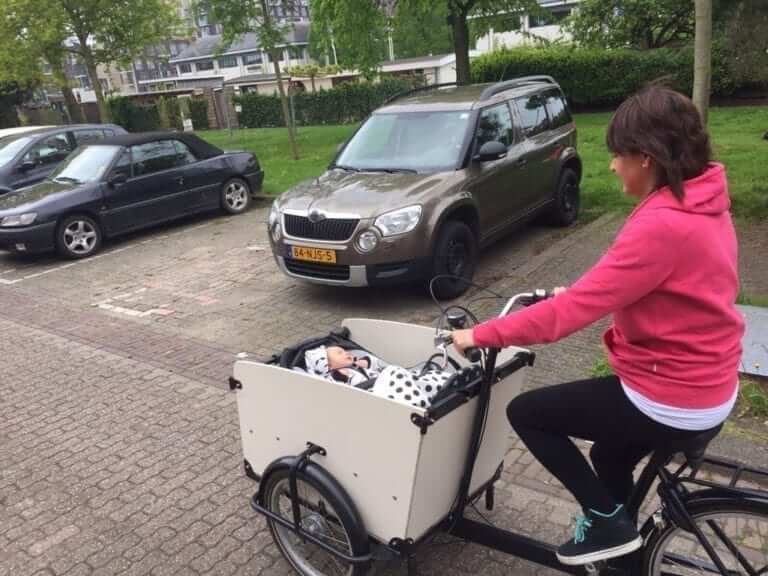
I used to ride a classic granny bike (oma fiets) before having a baby. I was able to ride with my baby in a carrier after he was a few months old, which was quite convenient.
I bought a mummy bike (mama fiets) when my baby was eight months old. The bike has a baby seat in the front, which my son just adores! Nothing beats bicycling with him in the fresh air and hearing him chuckle.
I saw those strong Dutch mothers riding their gorgeous cargo bikes (bakfiets) before I became pregnant and I wanted one. I now have a bakfiets, which requires a lot of ability to ride!
In my current circumstances in the Netherlands, I do not require a car. My bikes and public transportation get us everywhere we need to go – even with a baby!
Working in the Netherlands requires flexibility.
I’m in a fantastic circumstance where I can work part-time (two days each week). In my opinion, this is not as frowned upon in the Netherlands.
My husband works from home one day every week. This implies he will have more quality time with our son.
We have “papa dag” (daddy day) in the Netherlands. This is a set day off during the week for fathers to care for their children.
This gives us more alternatives and flexibility when it comes to job and our child. As a mother, this is really important to me.
The Dutch government also assists with daycare expenses. This implies that if you work, you may send your child to daycare without breaking the bank!
Obviously, every family situation is unique, and some may argue that they lack this flexibility. However, as compared to other countries, the Netherlands has far more possibilities.
I miss my mother.
The most difficult aspect of being a mother in the Netherlands for me is missing my own mother.
I miss her assistance and support. Of course, technology is incredible, and we have excellent communication, but she is still so far away.
Those times when I most need her are the most difficult, especially as a new mother.
Related Posts:
